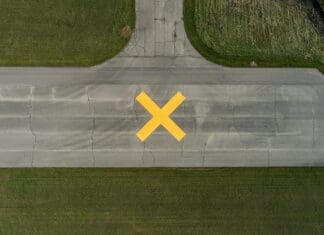This post is also available in:
 עברית (Hebrew)
עברית (Hebrew)
A conflict between the principles of civil rights and security requirements has been reflected by the attempt of US defense authorities to install explosion detecting sensors in public places.
A US Defense Department agency wants to install explosion-detection equipment on public property somewhere in Arlington, Virginia., and is asking the County Board to keep details about the equipment and its location secret.
According to Stars and Stripes, the proposal is being opposed by the American Civil Liberties Union of Virginia.
Arlington is home to the Pentagon, one of the sites attacked on Sept. 11, 2001. Reagan National Airport and multiple other federal facilities are also located there.
The system is designed to “characterize” explosions in urban environments, according to the Defense Threat Reduction Agency (DTRA). It would collect information that could help law enforcement prosecute suspects and assess damage.
“In the event of an intentional detonation such as a terrorist attack, information generated by the system is critical for the Federal government’s efforts to determine who was responsible for and how to respond to the event,” wrote Air Force Col. D. Brent Morris. “However, disclosure of the location of our equipment and information regarding its components and operation would jeopardize the ability for the system to provide valuable information in a timely fashion . . . by giving insight into the system’s design and coverage and possibly how to defeat the system.”
The defense agency said the network of sensors it wants to install would monitor “seismic, sound, air pressure, radiation, light, and radio frequency signals to help determine the size, location, and other characteristics of an explosion. All of the sensors being installed are passive until triggered by an event, and do not at any time record video or voice data.”
The agency’s statement said such sensors have already been installed in other U.S. cities, though it did not say which ones.
Science Magazine disclosed in March that there has been a government-wide effort to upgrade old blast sensors systems from a number of cities and link them into a network that would be operable as of 2018 and has been named “Discreet Oculus” which can be deployed in and around cities. A portable version is also planned.
Arlington County Manager has recommended approval of the request to install the sensors and keep the details secret. The defense agency’s request for secrecy cites a section of the Virginia Freedom of Information Act that allows the government to withhold information if doing so would prevent terrorist activities or cyberattacks or aid the response to such attacks.
But the ACLU of Virginia said that without more information, “citizens can have no assurance that the equipment … does not have the capability of recording private conversations conducted in public spaces or of invading personal privacy in other ways.”
The ACLU is not asking for the location of the sensors, she said, but is still concerned about the technology.


























